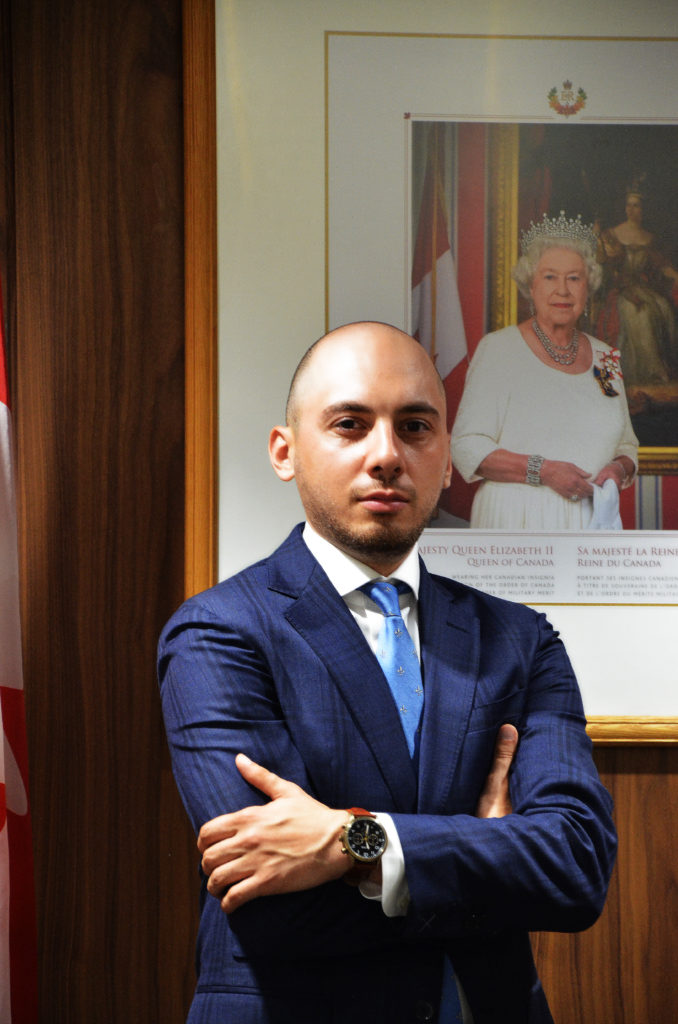Canadian Immigration Programs for German Nationals
Find out how you could settle in Canada with your family as an immigrant from Germany
What do I need to do to settle in Canada as an immigrant from Germany?
Immigrating to Canada from Germany is very similar to immigrating from other countries, as the Canadian immigration process is generally the same for all foreign nationals. The process is based on various immigration pathways, and the best route for you depends on factors like your work experience, education, family connections, and language skills. Below is a detailed explanation of how you can immigrate to Canada from Germany:
1. Express Entry System
The Express Entry system is the most common immigration route for skilled workers. It's a points-based system where applicants are ranked based on factors such as age, education, work experience, language proficiency, and adaptability.
Eligibility Requirements:
- Age: Ideally between 18-35 years (younger applicants receive more points).
- Work Experience: At least one year of skilled work experience (National Occupational Classification (NOC) 0, A, or B).
- Language Skills: Proficiency in either English or French. You'll need to take a recognized language test such as IELTS (for English) or TEF (for French).
- Education: A Canadian high school diploma or foreign credentials that are equivalent to Canadian standards. You may need to get your foreign credentials assessed by a recognized agency (e.g., WES - World Education Services).
- Financial Resources: Proof that you have enough money to support yourself and your family unless you have a valid job offer.
Steps for Express Entry:
- Check your eligibility for one of the following programs:
- Federal Skilled Worker Program (FSW): For skilled workers with work experience.
- Federal Skilled Trades Program (FSTP): For workers in skilled trades.
- Canadian Experience Class (CEC): For applicants with Canadian work experience (mainly for temporary residents or those who have worked in Canada).
- Create an Express Entry profile:
- Go to the official Immigration, Refugees, and Citizenship Canada (IRCC) website and create an online profile. You'll need to submit details about your education, work experience, language test results, and other relevant information.
- Calculate your CRS score:
- You will be ranked using the Comprehensive Ranking System (CRS). Your score is calculated based on factors like age, work experience, language skills, education, and whether you have a job offer in Canada. A higher score increases your chances of receiving an Invitation to Apply (ITA) for permanent residency.
- Receive an Invitation to Apply (ITA):
- If your score is high enough, you may receive an ITA in one of the bi-weekly draws held by the Canadian government.
- Submit your application:
- After receiving an ITA, you’ll have 60 days to submit your full application for permanent residency, including all necessary documents such as police certificates, medical exams, and proof of funds.
- Wait for a decision:
- After your application is processed (usually within 6 months), you'll receive a decision on your permanent residency status.
2. Provincial Nominee Program (PNP)
Each Canadian province and territory has its own immigration programs to address its unique labor market needs. If you have a job offer or skills that are in demand in a particular province, you may be eligible for provincial nomination, which can lead to permanent residency.
Eligibility Requirements:
- A job offer or work experience in a specific province or territory.
- Demonstrated intent to live in that province.
- The specific criteria of the province’s PNP.
Steps for Provincial Nominee Program:
-
Check provincial eligibility:
Each province has its own eligibility criteria, which may require you to have a job offer or specific skills that match the region's needs. -
Apply for a nomination:
Apply directly to the provincial government for a nomination. If nominated, you will receive additional points for the Express Entry system, which can increase your chances of receiving an ITA for permanent residency. -
Submit your PR application:
If you receive a provincial nomination, you can apply for permanent residency through the Express Entry system or through paper-based processing, depending on the province's procedure.
3. Family Sponsorship
If you have a close relative who is a Canadian citizen or permanent resident, they can sponsor you for immigration to Canada.
Eligibility Requirements:
- The sponsor must be a Canadian citizen or permanent resident and at least 18 years old.
- The sponsor must be able to provide financial support to the sponsored person.
- The sponsor must be your spouse, common-law partner, dependent child, parent, or grandparent.
Steps for Family Sponsorship:
-
Sponsor’s eligibility:
Your relative must meet the eligibility requirements to sponsor you. -
Submit the sponsorship application:
Your family member submits an application to sponsor you and you submit the application to immigrate. -
Application processing:
The Canadian government will process both the sponsorship and immigration applications. Processing times vary depending on the type of family sponsorship.
4. Start-Up Visa Program
If you are an entrepreneur with an innovative business idea, the Start-Up Visa Program is an option. This program is for individuals who want to start a business in Canada and have the potential to create jobs.
Eligibility Requirements:
- Have a letter of support from a designated Canadian organization (venture capital, angel investor group, or business incubator).
- Prove that you have sufficient financial resources to support yourself and your family.
- Meet language proficiency requirements (English or French).
Steps for Start-Up Visa Program:
-
Secure support from a designated organization:
This is a critical step. You need a recognized Canadian organization to support your business idea. -
Apply for the Start-Up Visa:
Once you have the support, you can apply for permanent residency under the Start-Up Visa Program.
5. Study Permit and Post-Graduation Work Permit (PGWP)
If you wish to study in Canada, you can apply for a study permit. After completing your studies, you may be eligible for a Post-Graduation Work Permit (PGWP), which allows you to gain work experience in Canada. Afterward, you may qualify for permanent residency through the Canadian Experience Class (CEC).
Eligibility Requirements for Study Permit:
- Acceptance into a Designated Learning Institution (DLI) in Canada.
- Proof of sufficient financial support to cover tuition fees, living expenses, and travel costs.
- Intent to leave Canada after your studies (unless applying for a PGWP).
Steps for Study Permit:
-
Apply to a Canadian institution:
Apply and be accepted into a Designated Learning Institution in Canada. -
Apply for a study permit:
Submit your study permit application online or at the Canadian Embassy/Consulate in Germany. -
Complete your studies:
After completing your studies, you may be eligible for a Post-Graduation Work Permit (PGWP), which can help you gain Canadian work experience.
6. Work Permit
If you have a job offer from a Canadian employer, you may be eligible for a temporary work permit. After gaining work experience, you can apply for permanent residency through the Express Entry system.
Eligibility Requirements:
- A valid job offer from a Canadian employer.
- The employer may need to obtain a Labour Market Impact Assessment (LMIA) to show that there are no qualified Canadians for the position.
Steps for Work Permit:
- Get a job offer from a Canadian employer.
- Apply for a work permit with the job offer and LMIA (if applicable).
- Work in Canada and gain experience to later apply for permanent residency.
Key Considerations:
- Language proficiency: Whether it’s English (IELTS, CELPIP) or French (TEF), demonstrating your ability to communicate in one of Canada’s official languages is crucial.
- Document requirements: Make sure to prepare and submit all necessary documents, including educational credentials, work experience, language test results, and medical exams.
- Application fees: Be aware that there are fees associated with applications for different programs, so plan your finances accordingly.
Here are some of the things that immigrants need to do to settle in Canada:
-
Apply for a visa: Immigrants must apply for and receive a visa that allows them to enter Canada. The type of visa needed depends on the individual's circumstances, such as their intended length of stay, reason for visiting, and country of origin.
-
Pass a medical exam: Immigrants are required to undergo a medical examination to ensure that they do not have any medical conditions that could pose a risk to public health.
-
Obtain a police certificate: Immigrants are required to provide a police certificate from their country of origin and any other country they have lived in for more than six months to show that they do not have a criminal record.
-
Find a place to live: Immigrants must find a place to live, whether that is through renting or buying a home or apartment.
-
Get a job: Immigrants must find a job to support themselves and their families, and to meet the requirements of their visa.
-
Learn English or French: Immigrants must be able to communicate effectively in English or French, which are the two official languages of Canada. There are language classes available to help immigrants improve their language skills.
-
Apply for a social insurance number: Immigrants must apply for a social insurance number, which is required to work and receive government benefits.
-
Open a bank account: Immigrants should open a bank account to manage their finances and receive their salary.
-
Enroll in healthcare: Immigrants must enroll in the public healthcare system to receive medical services and treatments.
-
Connect with the community: Immigrants should try to connect with the local community, whether that is through volunteering, joining a club or organization, or attending cultural events.
These are just some of the many things that immigrants need to do to settle in Canada. Immigration requirements and procedures can vary depending on the individual's circumstances, so it is important to seek professional advice and guidance.
What are things immigrants have to do to settle in Toronto?
Here are some things immigrants need to do to settle in Toronto:
-
Obtain legal status: Immigrants must have legal status in Canada to settle in Toronto. This can be achieved by applying for and receiving a visa, or by being granted refugee status.
-
Find a place to live: Immigrants must find a place to live in Toronto. This can include renting or buying a home or apartment, or living in temporary accommodation while searching for permanent housing.
-
Get a job: Immigrants should try to find a job in Toronto to support themselves and their families. There are many resources available to help immigrants with job searching, including job fairs, employment centers, and online job boards.
-
Learn English: English is the most commonly spoken language in Toronto, so immigrants should try to learn English to communicate effectively with others. There are many language classes available to help immigrants improve their language skills.
-
Obtain a driver's license: If immigrants plan to drive in Toronto, they will need to obtain a driver's license. The process for obtaining a driver's license can vary depending on the individual's country of origin.
-
Enroll in healthcare: Immigrants must enroll in the public healthcare system in Ontario to receive medical services and treatments. This can be done through the Ontario Health Insurance Plan (OHIP).
-
Connect with the community: Immigrants should try to connect with the local community in Toronto, whether that is through volunteering, joining a club or organization, or attending cultural events. This can help immigrants feel more at home in their new city.
-
Understand the cost of living: The cost of living in Toronto can be high, so immigrants should be prepared for this and budget accordingly.
These are just some of the things that immigrants need to do to settle in Toronto. It is important to seek professional advice and guidance to ensure a smooth transition to life in Canada.
Start your Process Today by Completing the Online Assessment Form.







